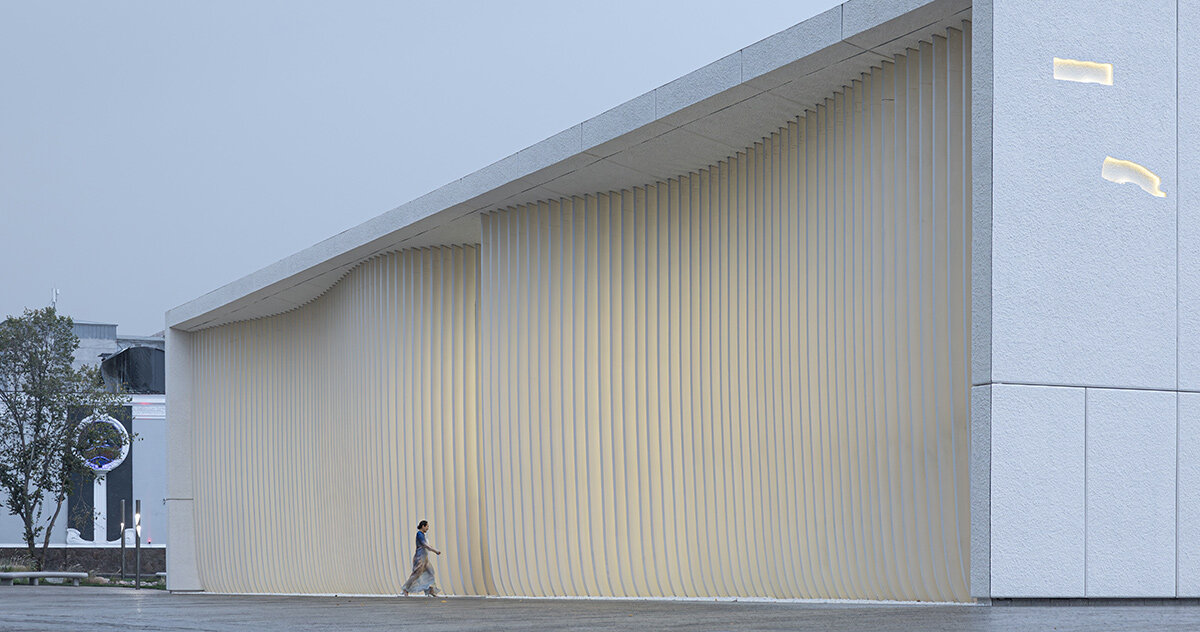a new landmark opens in almaty, kazakhstan
The Tselinny Center of Contemporary Culture has officially opened in Almaty, Kazakhstan, marking the transformation of the city’s historic Tselinny cinema into a new cultural institution. Designed by London-based architect Asif Khan, the project extends across nearly 6,000 square meters of renovated interiors and a landscaped site of equal size, signaling a new era for the region’s artistic community.
With its undulating facade, the design integrates contemporary cultural programming with the building’s Soviet-era legacy, offering a space that connects Central Asia’s history and its evolving creative future. Khan’s approach balances structural renewal with symbolic gestures, creating a destination that responds to Almaty’s layered past while welcoming a diverse public.
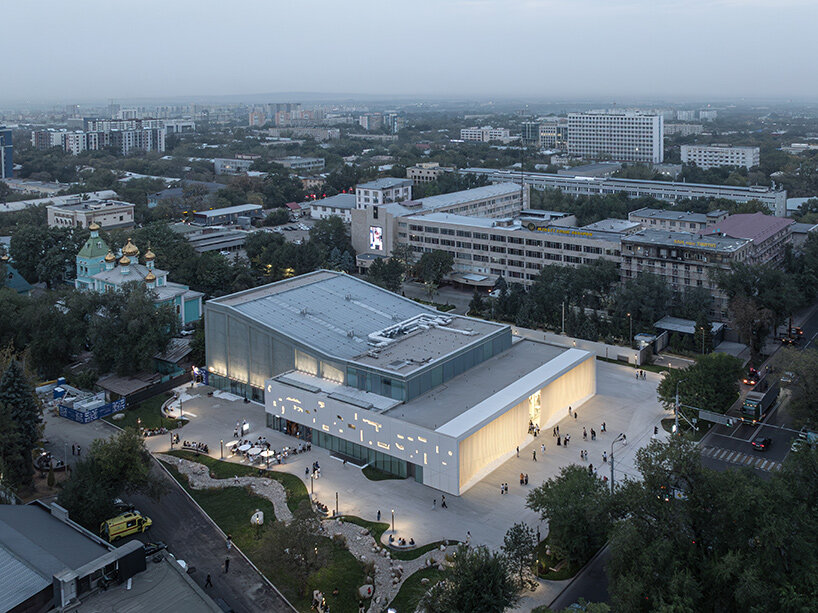
images © Laurian Ghinitoiu
a modernist soviet cinema revived
The Asif Kahn-converted Tselinny Center of Contemporary Culture occupies an historic site in Almaty, Kazakhstan. Built in 1964, the original cinema commemorated the Soviet ‘Virgin Lands’ campaign, a politically charged project that reshaped the region’s relationship to its steppe landscape. Over the decades, the building fell into disrepair, its monumental auditorium subdivided and its historic sgraffito — scratched or carved — artwork partially lost.
Beginning in 2017, the Tselinny Center team initiated a careful reconstruction. Khan worked closely with local architect Zaure Aitayeva to stabilize the structure, strengthen it against seismic activity, and reintroduce its original spatial clarity. The rediscovered sgrafitto by Soviet artist Evgeny Sidorkin was restored with a restrained palette, allowing the work to coexist with contemporary art installations.
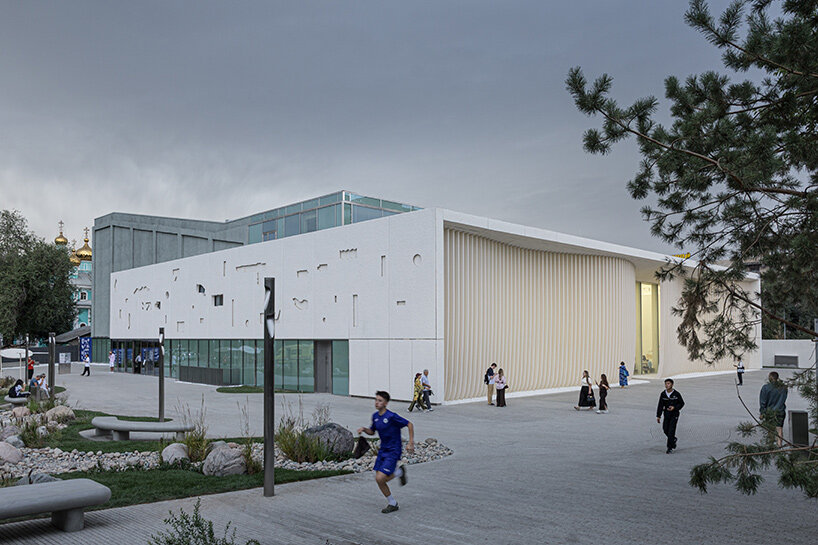
the Tselinny Center opens in Almaty as a new cultural landmark
the Tselinny Center renovation by asif kahn
The renovation removes intrusive additions while revealing the auditorium’s impressive 18-meter (59-foot) height. Acoustic treatments and integrated systems now support a range of exhibitions and performances. A continuous ribbon of stainless steel and glass wraps the ground floor, introducing daylight and linking the interior to the surrounding landscape.
A new ‘cloudscape’ of embossed symbols spans the north and south facades, drawing from Kazakh ornament and ancient petroglyphs. This abstract language appears in windows, lighting, and staircases, subtly embedding cultural memory into the architecture.
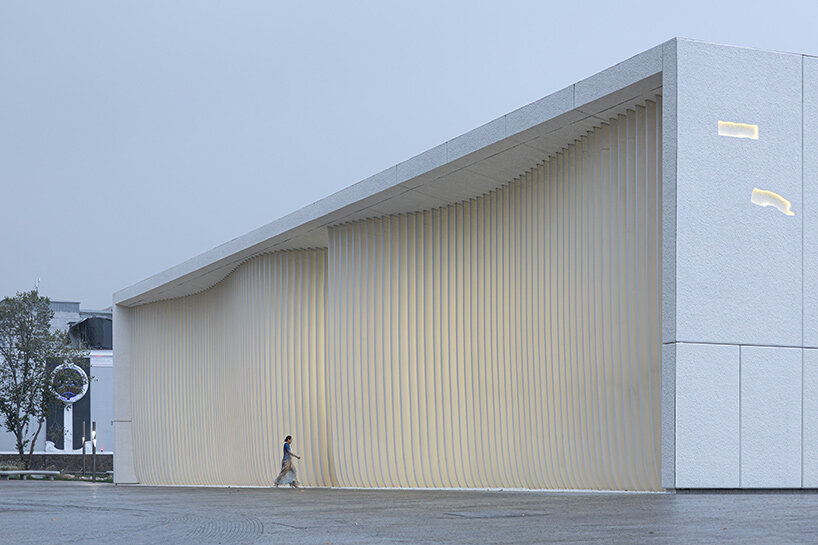
Asif Khan restores a Soviet cinema into a contemporary art venue
Asif Khan retained the building’s exposed concrete, complemented by geological finishes that ground the project in Kazakhstan’s natural history. Fossil-rich limestone from the Mangystau region forms the reception desk, while earth-toned concrete floors and river stones from Almaty’s terrain extend the connection between interior and landscape.
At the entrance, a softly curving, cloud-like threshold introduces a sense of openness and movement, counterbalancing the building’s monumental frame. Inside, a lowered ground plane eliminates level changes, creating a seamless public space that flows outward to adjacent squares and parkland.
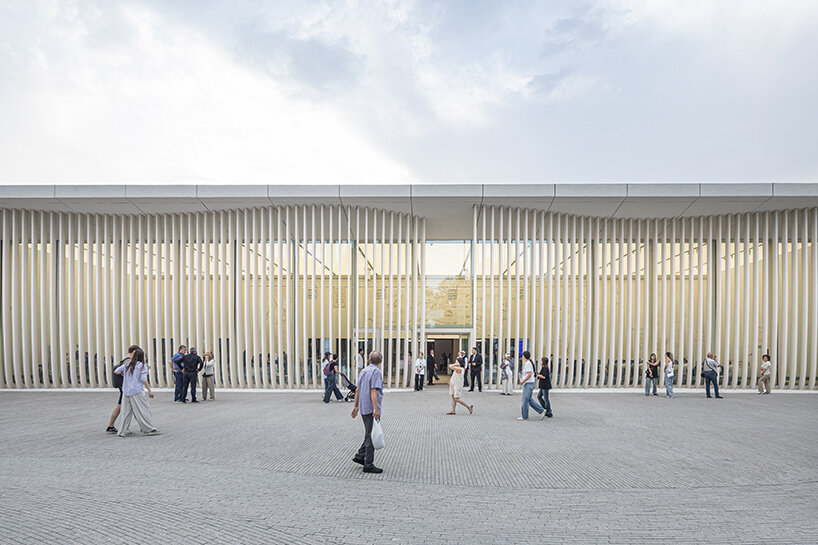
a stainless steel ribbon brings daylight and 360 degree access
The reconfigured interior accommodates a series of flexible galleries and gathering areas, including the vast Orta 3 auditorium, the white-box Capsule gallery, and a rooftop terrace with panoramic views of the Ile-Alatau mountains. A new café, learning atelier, and quiet rooms enhance the Center’s role as a community hub.
This design prioritizes adaptable, multi-format spaces, allowing the Tselinny Center to host performances, exhibitions, and interdisciplinary events without fixed orientation. The inaugural program, BARSAKELMES, sets the tone with a live performance staged in the round, drawing on ancient Kazakh traditions.
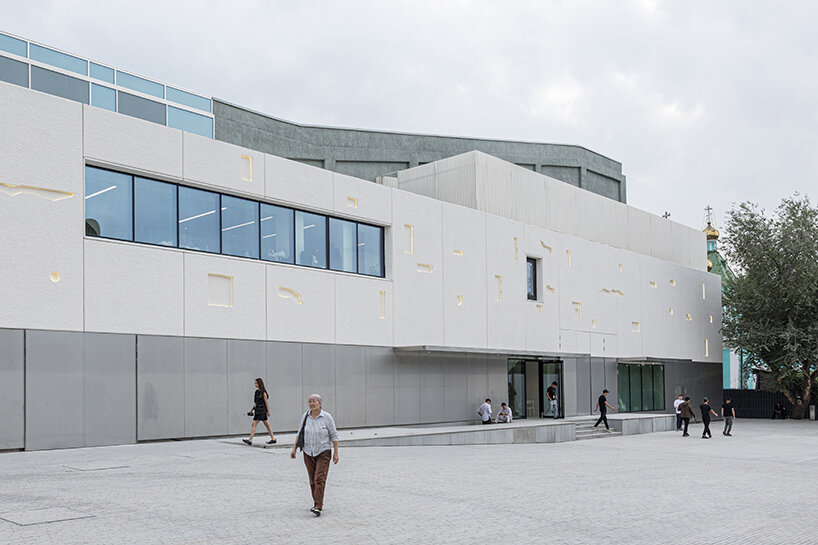
historic sgrafitto artwork is carefully revealed and renewed

